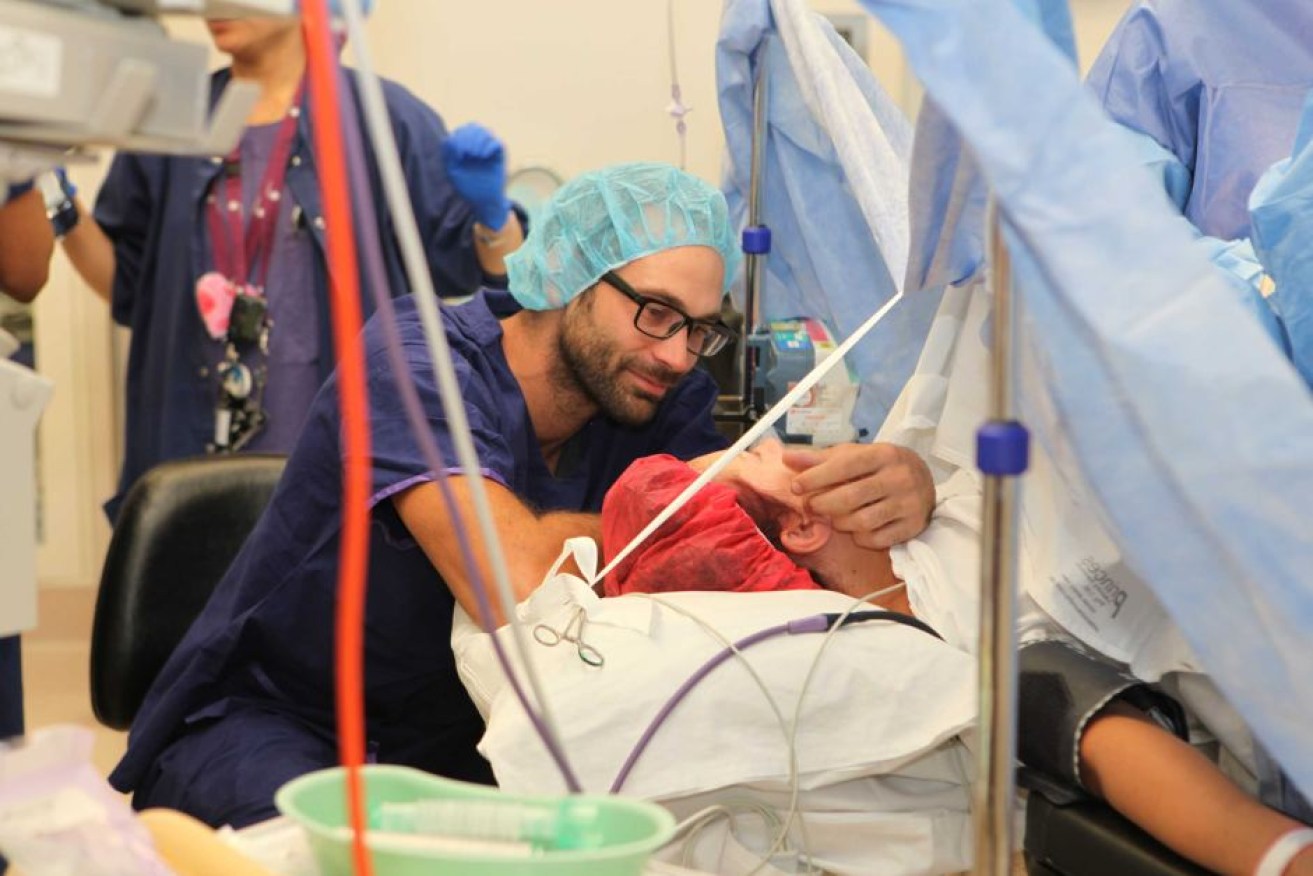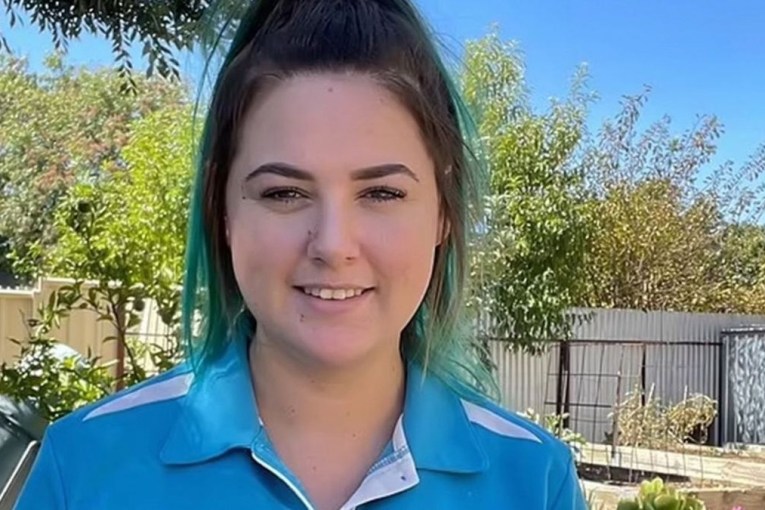New blood test brings hope to women with life-threatening pregnancy condition pre-eclampsia

Jarrod Smith and Stephanie Micallef-Smith say the premature birth of their daughter was a frightening time. Photo: Royal Women's Hospital
Medical experts say a new blood test that can predict who will develop the potentially deadly pregnancy disorder pre-eclampsia will save mothers and babies from life-threatening complications and premature birth.
Melbourne’s Royal Women’s Hospital is Australia’s first medical centre to introduce the simple test that flags the risk of developing the condition and enables early treatment for those women found to be at risk.
Pre-eclampsia is the most common serious medical disorder in pregnancy and can be life-threatening for mothers and babies.
One in 20 pregnant women develop pre-eclampsia, which causes dangerously high blood pressure and can threaten a woman’s vital organs including the brain, liver and kidneys.
Pre-eclampsia can affect an unborn baby’s placenta and decrease the foetal supply of oxygen and food leading to slower growth in the womb, premature birth and, in some cases, death.
Calls for blood test to be available nationally
The hospital’s director of maternal-foetal medicine, Professor Shaun Brennecke described the blood test as a “long awaited and very important step forward”.
“It’s the best available predictive test for telling who will and who will not develop pre-eclampsia during the latter stages of pregnancy,” he said.
“Pre-eclampsia’s been around throughout human history and even today around the world it’s one of the major causes of death and disability of mothers and babies in relation to pregnancy.”
The simple blood test measures two proteins that are released from the placenta. The proteins are found in abnormal levels in women who will develop the disorder.
Until now, there has been no reliable predictive test for pre-eclampsia.
“In the past we’ve had to wait until pre-eclampsia was clinically obvious by which time mothers were often quite sick,” Professor Brennecke said.
“If a test is positive we can increase our vigilance and surveillance and we can also be in a position, being forewarned and therefore forearmed, to start medications that can improve the outcome for both mother and baby.”

Ella Smith was born at 26 weeks after her mother developed pre-eclampsia.
‘Petrifying condition’, parents say
Pre-eclampsia proved a terrifying diagnosis for Stephanie Micallef-Smith and her husband Jarrod Smith.
It forced the premature delivery of their daughter, Ella, at just 26 weeks gestation.
Ms Micallef-Smith said she had a normal pregnancy until she woke up one morning with a puffy face, extremely swollen ankles and a severe headache — all classic symptoms of the condition.
“I had three doctors walk in and say ‘we’ve got to deliver because we’re going to lose either the baby or you so we have to get this baby out’,” Ms Micallef-Smith said.
“I went into shock. It was petrifying.”
Ella was born weighing just 780 grams and spent many months in the neonatal intensive care ward.
Ms Micallef-Smith, who is now 15 weeks pregnant with her second child, has had the new blood test and the results are clear so far.
She will have the test repeated in coming weeks.
Ms Micallef-Smith wished the blood test had been available for her first pregnancy.
“If we can catch it before the horse gets out of the gate we can rein it back in,” she said. “But if the horse is already out we can’t do anything about it.”

Ella Smith’s parents hope the pre-eclampsia blood test will soon be available nationally. Photo: ABC
She wants the blood test available Australia-wide.
“It needs to be rolled out at other hospitals. It’s such a deadly disease that not enough people are aware about and if it gets you people die. Women die from this every day.”
Jarrod Smith said his daughter’s birth was a “scary time”.
But he described Ella, now aged 2, as a “hero”.
“She’s awesome to us but [remembering her birth] brings a lot of emotion. We had to wait so long before we could touch her, let alone hold her.”
Both parents said they hoped the new blood test would be available nationally as swiftly as possible.







